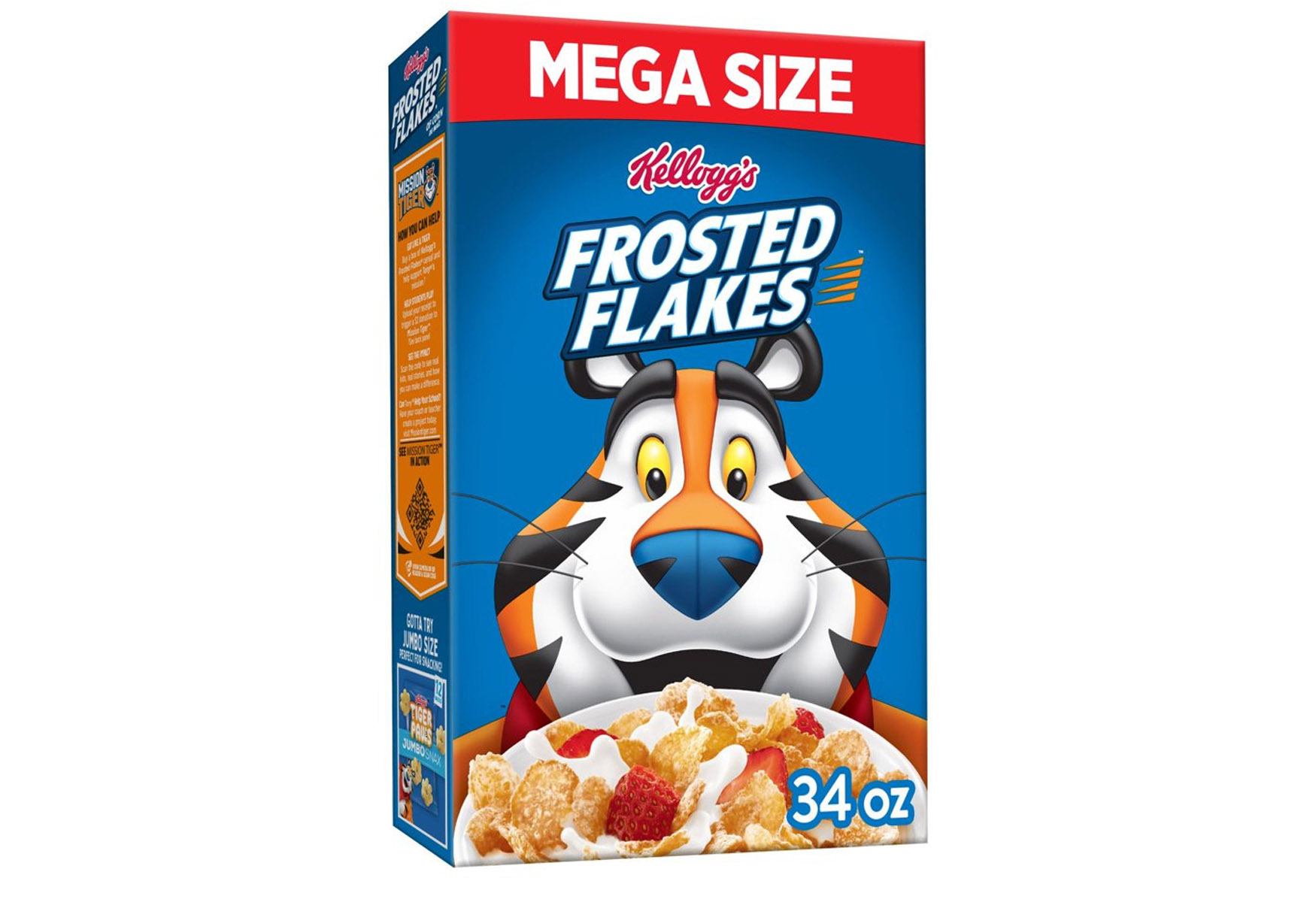
Are you a fan of Kellogg Frosted Flakes? Well, you’re not alone! These crispy, golden flakes coated with a delicious frosting are a beloved breakfast cereal for many. But have you ever wondered about the nutritional value of this classic morning treat? In this article, we are going to dive into the 18 Kellogg Frosted Flakes nutrition facts you need to know.From calories and macronutrients to vitamins and minerals, we will uncover the nutritional profile of Kellogg Frosted Flakes and discuss why they can be a part of a balanced diet. Whether you enjoy them with cold milk or as a crunchy topping for your yogurt, understanding the nutritional benefits of Frosted Flakes will help you make informed choices about your breakfast routine.So, grab a bowl of these iconic flakes and let’s explore the nutrition facts behind Kellogg Frosted Flakes!
Key Takeaways:
- Kellogg’s Frosted Flakes have 140 calories per cup, low fat, and no cholesterol. They contain added sugars and provide some essential vitamins and minerals, making them a tasty but moderately nutritious choice.
- Enjoy Kellogg’s Frosted Flakes in moderation as they offer low fat, added sugars, and essential nutrients like vitamin D, calcium, and iron. It’s a delicious breakfast or snack option with some nutritional value.
Serving Size: 1 cup (39g)
A single serving of Kellogg’s Frosted Flakes weighs around 39 grams.
Calories: 140
One cup of Kellogg’s Frosted Flakes contains approximately 140 calories.
Total Fat: 0.5g
There is only 0.5 grams of total fat in one cup of Kellogg’s Frosted Flakes.
Saturated Fat: 0g
Kellogg’s Frosted Flakes do not contain any saturated fat.
Trans Fat: 0g
There is no trans fat present in Kellogg’s Frosted Flakes.
Cholesterol: 0mg
Kellogg’s Frosted Flakes are completely cholesterol-free.
Sodium: 150mg
One serving of Kellogg’s Frosted Flakes contains 150 milligrams of sodium.
Total Carbohydrate: 34g
Kellogg’s Frosted Flakes have a total carbohydrate content of 34 grams per serving.
Dietary Fiber: 1g
Each serving of Kellogg’s Frosted Flakes provides 1 gram of dietary fiber.
Total Sugars: 11g
Kellogg’s Frosted Flakes contain 11 grams of total sugars.
Added Sugars: 11g
All the sugar in Kellogg’s Frosted Flakes is added sugar rather than naturally occurring sugar.
Protein: 1g
One cup of Kellogg’s Frosted Flakes provides 1 gram of protein.
Vitamin D: 3mcg (15% DV)
Kellogg’s Frosted Flakes are fortified with vitamin D, providing 15% of the recommended daily value per serving.
Calcium: 100mg (8% DV)
Each serving of Kellogg’s Frosted Flakes contains 8% of the recommended daily value of calcium.
Iron: 1.7mg (10% DV)
Kellogg’s Frosted Flakes contribute 10% of the recommended daily value of iron per serving.
Potassium: 35mg (0.7% DV)
A small amount of potassium, approximately 0.7% of the recommended daily value, is found in Kellogg’s Frosted Flakes.
Vitamin A: 210 IU (4% DV)
Kellogg’s Frosted Flakes contain 4% of the recommended daily value of vitamin A per serving.
Vitamin C: 10mg (15% DV)
A serving of Kellogg’s Frosted Flakes provides 15% of the recommended daily value of vitamin C.
The 18 Kellogg Frosted Flakes Nutrition Facts provide valuable information about the nutritional composition of this popular cereal. Each serving of Kellogg’s Frosted Flakes, weighing 1 cup or approximately 39 grams, contains around 140 calories. The total fat content is relatively low, with just 0.5 grams and no saturated or trans fat. Cholesterol is completely absent from the cereal.
However, it is important to note that Kellogg’s Frosted Flakes do contain some sodium, with 150 milligrams per serving. The total carbohydrate content is 34 grams, with 1 gram of dietary fiber and 11 grams of total sugars, all of which are added sugars rather than naturally occurring. The protein content is relatively low, at just 1 gram per serving.
In terms of vitamins and minerals, Kellogg’s Frosted Flakes are fortified with several key nutrients. Each serving provides 15% of the recommended daily value of vitamin D, 8% of calcium, 10% of iron, 0.7% of potassium, 4% of vitamin A, and 15% of vitamin C.
The 18 Kellogg Frosted Flakes Nutrition Facts serve as a helpful guide for individuals interested in understanding the nutritional value of this beloved cereal. Whether enjoyed with milk for breakfast or as a snack on the go, it is essential to be aware of the essential nutrients and calorie content offered by this popular cereal.
Conclusion
Kellogg’s Frosted Flakes is a popular breakfast cereal enjoyed by people of all ages. Not only does it provide a tasty start to the day, but it also offers several nutritional benefits. With 18 essential vitamins and minerals, Kellogg’s Frosted Flakes can contribute to a well-rounded diet. It is a rich source of energy, thanks to its high carbohydrate content, making it a great choice for an active lifestyle. Additionally, Kellogg’s Frosted Flakes are low in fat and cholesterol, making them a healthier option compared to other sugary breakfast cereals. So, enjoy your bowl of Kellogg’s Frosted Flakes, knowing that you are getting a delicious and nutritious start to your day!
FAQs
1. How many calories are in Kellogg’s Frosted Flakes?
Kellogg’s Frosted Flakes contain approximately 110 calories per serving.
2. Are there any vitamins and minerals in Kellogg’s Frosted Flakes?
Yes, Kellogg’s Frosted Flakes are fortified with 18 essential vitamins and minerals, including vitamin C, iron, and calcium.
3. Are Kellogg’s Frosted Flakes a good source of fiber?
No, Kellogg’s Frosted Flakes are not particularly high in fiber. They contain about 1 gram of dietary fiber per serving.
4. Are Kellogg’s Frosted Flakes gluten-free?
No, Kellogg’s Frosted Flakes are not gluten-free. They contain wheat and may contain traces of barley.
5. Can Kellogg’s Frosted Flakes be part of a balanced diet?
Yes, when consumed in moderation as part of a balanced diet, Kellogg’s Frosted Flakes can be a part of a healthy eating plan. Pairing it with milk and fresh fruits can further enhance its nutritional value.
Was this page helpful?
Our commitment to delivering trustworthy and engaging content is at the heart of what we do. Each fact on our site is contributed by real users like you, bringing a wealth of diverse insights and information. To ensure the highest standards of accuracy and reliability, our dedicated editors meticulously review each submission. This process guarantees that the facts we share are not only fascinating but also credible. Trust in our commitment to quality and authenticity as you explore and learn with us.


